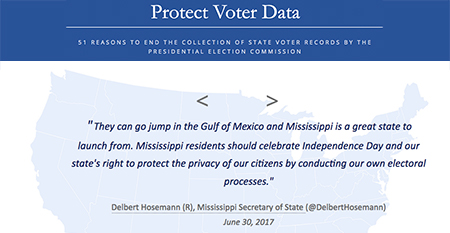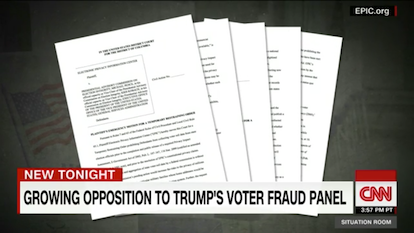The FBI has released a final rule claiming several Privacy Act Exemptions for the Next Generation Identification System, a database that contains the biometric data of millions of Americans, much of which is unrelated to law enforcement. EPIC had criticized the FBI's proposal to remove Privacy Act safeguards and urged the FBI to limit the scope of data collection and reduce the retention of data. However, in issuing the final rule the FBI repeatedly stated that exemptions would be used responsibly and in accordance with FBI policies and procedures. Through a FOIA lawsuit, EPIC obtained documents that revealed the NGI database contained an error rate of up to 20% on facial recognition searches. EPIC has identified several problems with the NGI database in statements to Congress oversight Committees, which have indicated strong concern about the FBI's facial recognition program.
A federal appeals court in Washington, D.C. has ruled that consumers may sue companies that fail to safeguard their personal data. Consumers sued health insurer Carefirst after faulty security practices allowed hackers to obtain 1.1 million customer records. EPIC filed an amicus brief in the case, in support of the consumers, arguing that if "companies fail to invest in reasonable security measures, then consumers will continue to face harm from data breaches." The appeals court agreed with EPIC that the lower court was wrong to dismiss the case. "No long sequence of uncertain contingencies involving multiple independent actors has to occur before the plaintiffs in this case will suffer any harm," the Court wrote. EPIC regularly files amicus briefs defending consumer privacy and addressing emerging privacy challenges.
A bipartisan group of Senators, including Senators Mark R. Warner (D-VA), Cory Gardner (R-CO), Ron Wyden (D-WA) and Steve Daines (R-MT), have introduced legislation to improve security of Internet-connected devices. The Internet of Things (IoT) Cybersecurity Improvement Act of 2017 would require "Internet of Things" devices purchased by the U.S. government to meet minimum security standards. IoT device manufacturers who sell products to the federal government must commit that their IoT devices: (1) are patchable; (2) do not contain known vulnerabilities; (3) rely on standard protocols; and (4) do not contain hard-coded passwords. "The proliferation of insecure Internet-connected devices presents an enormous security challenge," said EPIC Advisory Board member Bruce Schneier, "The risks are no longer solely about data; they affect flesh and steel." EPIC has been at the forefront of policy efforts to establish safeguards for IoT devices, connected cars, "smart homes," consumer products, and "always on" devices. A 2015 report from the Aspen Institute also explores "Policies for the Internet of Things."






















